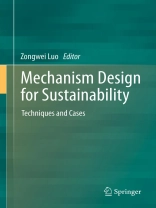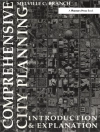This book provides advanced analytics and decision management techniques and tools for developing sustainable competitive advantages in the studied target context. In order to achieve sustainable economy, “the capacity to endure, ” it is essential to understand and study the mechanisms for interactions and impact from and among these perspectives.
Inhoudsopgave
I Introduction.- 1. Introduction to Sustainability Mechanisms.- II Mechanism Design Techniques for Sustainability.- 2. Multi-Criteria Decision Making: A Mechanism Design Technique for Sustainability.- 3. Mechanism Design for Allocation of Carbon Emission Reduction Units: A Study of Global Companies with Strategic Divisions and Partners.- 4. Six Sigma Methodology for Sustainability: A Study on the Environment Sustainable Development.- 5. Soft TQM for Sustainability: An Empirical Study on Indian Cement industry and its Impact on Organizational Performance.- III Sustainability Mechanism and Analysis.- 6. An Energy Optimization Framework for Sustainability Analysis: Inclusion of Behavioral Parameters as a Virtual Technology in Energy Optimization Models.- 7. Supply Chain Evolution for Sustainability Focused Firms: Content Analysis towards Socially and Environmentally Friendliness.- 8. Community Participation Mechanism: A Study of Youth Voices in Conservations’ Green Leaf Marketplace.- 9. The “ECOLOGICAL” Stock: “A Financial Market Instrument for Global Scale Climate Change Mitigation” .- IV Sustainability Cases.- 10. Sustainable Lake: A Case Study of Trasimeno Lake.- 11. Sustainable Farm: A Case Study of a Small Farm from Pali, India.- 12. Sustainable City: A Case Study of Stormwater Management in Economically Developed Urban Catchments.- 13. Sustainable Software: A Study of Software Product Sustainable Development.- 14. Sustainability Policy: A Case Study of the Limits to Biofuel Sustainability Policy.












